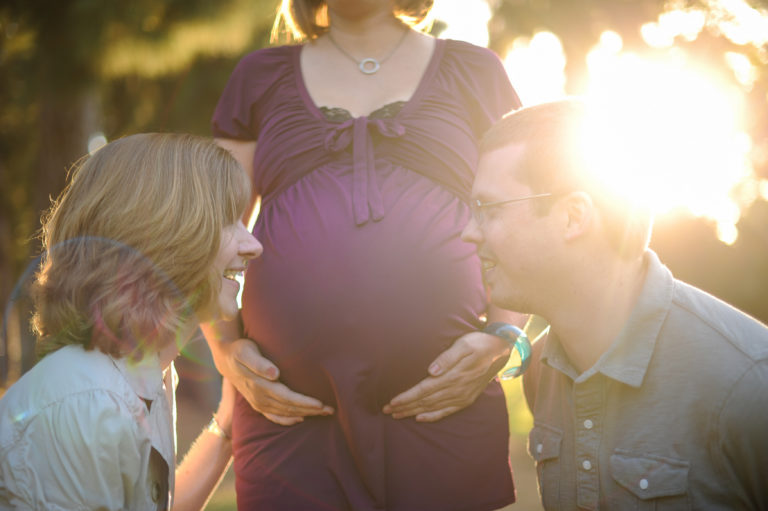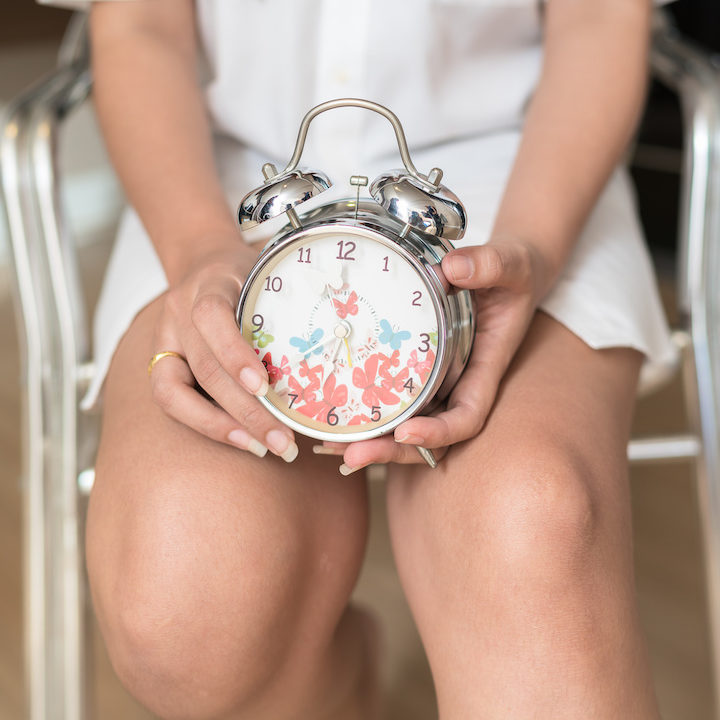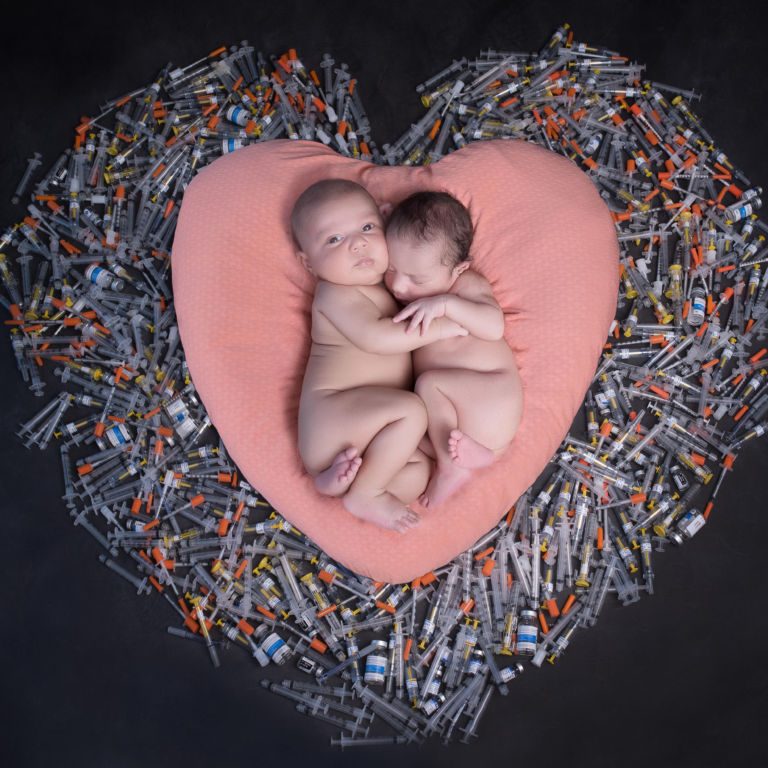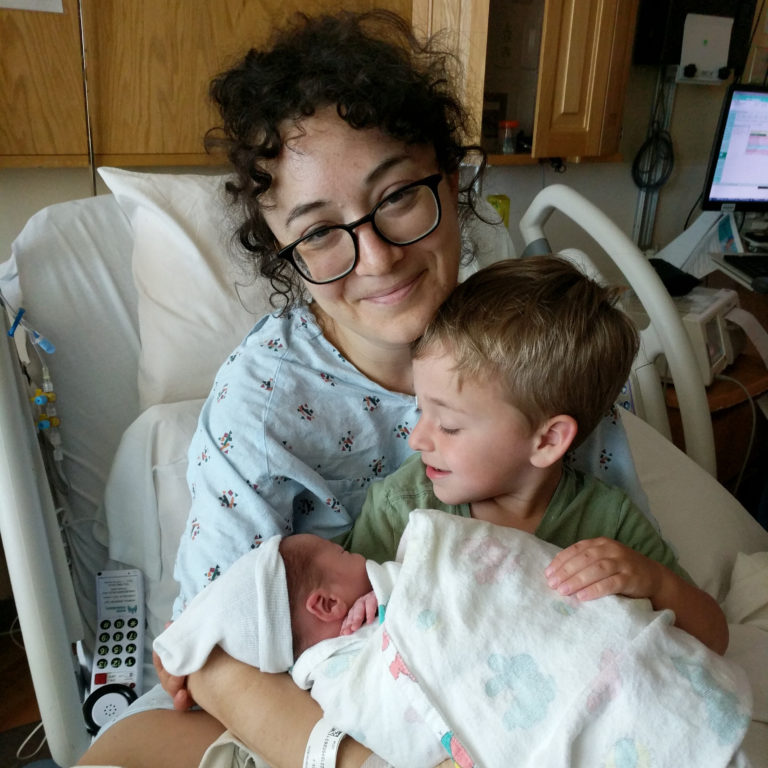Frozen Eggs Safeguarded Her Options
Single, in her mid-30s and finding out Mr. Right was Mr. Wrong, Kelley decided to preserve her dreams of motherhood.
Shortly after Kelley’s long-term relationship came to an end when she was 33 years old, she was faced with a question she’d not previously considered. During an annual exam, her OB-GYN asked her if she’d given any thought to freezing her eggs to preserve her reproductive options. The doctor explained that after age 35, women often have more difficulty conceiving and carrying a healthy baby to term.
“I’d always wanted to be a mom, but I was starting to get worried,” says Kelley, which for the sake of privacy is not her real name. “A girlfriend of mine had frozen her eggs in her mid-30s so I had some familiarity with it and decided I would look into it. My OB-GYN referred me to a few fertility doctors including Dr. Sgarlata (now retired) at Reproductive Science Center.”
Before her visit to RSC, Kelley had a disheartening consultation at another clinic. When she brought up the topic of frozen eggs, she was told her future odds of success were slight.
“The doctor at the other clinic really downplayed egg freezing, saying I’d need at least 20 eggs, which would require at least two cycles,” Kelley recalls. “I understand that he was trying to set realistic expectations, but he really made me feel like I had no chance.
“Dr. Sgarlata’s office had a totally different vibe. He gave me hope. He couldn’t offer me any guarantees but he was very encouraging. He said that based on my tests that I would be a good candidate to pursue egg freezing. After one cycle, I ended up getting 13 eggs from the retrieval procedure at RSC.”
Finding love and facing obstacles
Shortly after banking frozen eggs at RSC, Kelley began dating the man who would soon become her husband. Happy and in love, the couple started trying to have children shortly after walking the aisle. Kelley wanted to try to conceive naturally, but she knew she had the eggs as a backup plan.
“We tried for about a year on our own, but I didn’t get pregnant,” Kelley explains. “Then we went back to RSC and talked to Dr. Deborah Wachs. She laid out all of our options given our circumstances and explained our odds of conceiving. I don’t think my husband was ready to go through IVF or any other type of treatment so we decided we’d keep trying naturally for a little bit longer.”
Now 37 years old, Kelley continued to struggle to get pregnant. She visited her OB/GYN, who recommended she start taking Clomid, a medication that stimulates ovulation. This medication is often coupled with ultrasound monitoring, allowing the doctor to administer an injection that triggers the release of egg follicles on the ovaries when they reach maturity. In Kelley’s case, the ultrasound turned up something unexpected.
“The technician said that she observed uterine polyps on the ultrasound,” Kelley explains. “I left the OB/GYN feeling distraught. The info she gave me was very vague. I called Dr. Wachs and I was in tears as I spoke with her. She assured me that this wasn’t the end of the world and that treatment was possible.”
Pursuing IVF with frozen eggs
Dr. Wachs partnered with Kelley and her husband to develop a game plan. First, they scheduled an outpatient surgical procedure to remove the polyps, which can prevent an embryo from implanting in the uterus.
“During my procedure, Dr. Wachs was at my bedside rubbing my feet and making sure I was comfortable,” Kelley recalls. “I just don’t know many doctors who are that caring.”
Even with the polyps removed, Dr. Wachs explained that based on the results of fertility testing, the length of time they had been trying, as well as Kelley’s age, the couple’s chances of conceiving naturally were still quite low – around 5 percent in any given month. In vitro fertilization (IVF) using Kelley’s frozen eggs had a much better prognosis, so they decided to pursue this route.
“Dr. Wachs respected our wishes to not have an excessive number of embryos,” says Kelley. “She thawed six of the 13 frozen eggs and all six survived. We ended up with three viable embryos. We transferred one, and froze the other two. Dr. Wachs came in on her day off to do the transfer personally, because I wanted her to be the one to do it.”
Egg freezing is an investment
Now in the midst of her second trimester of pregnancy, Kelley and her husband expect to meet their daughter this September (prenatal testing revealed the gender). After that, they’re considering returning to RSC to continue building their family.
“We definitely want more kids,” Kelley says. “We may try naturally again, but we know we have those two healthy embryos left so we will probably be back for the others.
“Egg freezing is a financial investment,” she continues. “But fertility isn’t something you can get back. There’s no amount of money in my mind that’s worth more than that.”






